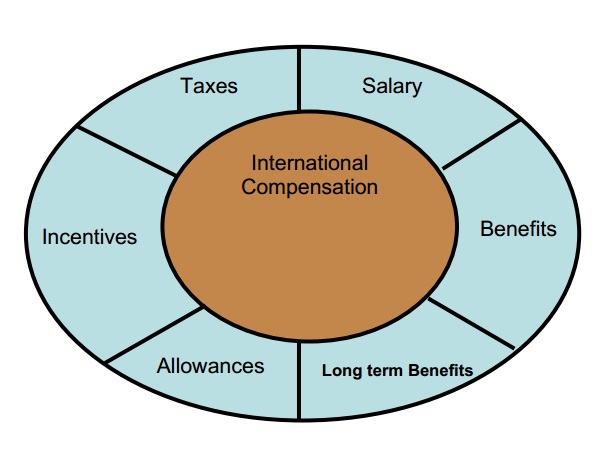Negotiator is the key person for the profitable survival of the organization in a competitive world. Negotiation as an art requires certain inherent qualities of an individual that makes the negotiator more dynamic and natural. Skillful managers must assess many factors when managing international business negotiations. The successful management of intercultural negotiations requires that manager go beyond a generalized understanding of the issues and variables involve. The negotiator must have the knowledge about the following things. Value: Business negotiators must make sure that they have an intelligent understanding of the facts that are the basis for any negotiation. Failure to gather & understand the relevant facts that support optimal deal making will result in a failed negotiation or negotiations where value or resources are left on the table. Process: Any negotiation that does possess a vigorously defined negotiation process and lacks a management infrastructure runs the risk of a sub-standard Continue reading
International HRM
International Business Negotiations
In a number of cases the foreign market entry and strategy implementation involve negotiation with the government of the foreign country and / or foreign firm. International business plans “are always often implemented through, face-to-face negotiations with business partners and customers from foreign countries. The sales of goods and services, the management of distribution channels, the contracting for marketing research and advertising services, licensing and franchise agreements and strategic alliances all require managers from different cultures to sit and talk with one another to exchange ideas and express needs and preferences. Executives must also negotiate with representatives of foreign governments who might approve a variety of their marketing actions’ or in fact be the actual ultimate customer for goods’ and services. In many countries governmental officials may also be joint venture partners, and in some cases vendors. International business negotiations are deliberate interactions of two or more social units (at Continue reading
The Changing Nature of the Employment Relationship
Business environment is changing drastically in today’s corporate world. In early years of current management era manager were suppose to work exclusively with equipment’s, data and systems; performing traditional tasks. But scenario of management responsibilities has been changed significantly and today’s manger faces issues like cross training, personnel management, interdepartmental communication and widening job scope. Globalization is shaping and re-shaping business environment, resulting in increase of competitors, demand of new sourcing strategies and facing new markets with new demands. Irregular flow of information often subject to quantitatively strong fluctuations, controlling the flow of information is necessary otherwise these fluctuations can become detrimental. Information controlling is the analysis, evaluation and importance attached to the data that collected and provided with the data under various criteria. Because day by day managerial job is becoming more and more hectic manager needs to continuously look for new ways to improve speed and quality along Continue reading
Organizational Change
The concept of organizational change is in regard to organization-wide change, as opposed to smaller changes such as hiring a new person, modifying a program, buying a new computer for the department etc. Examples of organization-wide change are a change in mission statement, restructuring operations (e.g., restructuring to self-managed teams, layoffs, etc.), new technologies, mergers, major collaborations, “rightsizing”, new programs such as Total Quality Management, Business Process Re-engineering, etc. Some experts refer to such change as “organizational transformation”. Organizational change means that there is a fundamental and radical reorientation in the way the organization operates. What are the forces, which necessitate change? Change should not be done for the sake of change — it is a strategy to accomplish the overall goal. Usually organizational change is provoked by some major outside driving force, e.g., substantial cuts in funding, address major new markets/clients, need for dramatic increases in productivity/services, etc. It Continue reading
International Compensation Management
Designing and developing a better compensation package for HR professionals for the international assignments requires knowledge of taxation, employment laws, and foreign currency fluctuation by the HR professionals. Moreover, the socio-economic conditions of the country have to be taken into consideration while developing a compensation package. It is easy to develop the compensation package for the parent country national but difficult to manage the host and third country nationals. When a firm develops international compensation policies, it tries to fulfills some broad objectives: The compensation policy should be in line with the structure, business needs and overall strategy of the organization. The policy should aim at attracting and retaining the best talent. It should enhance employee satisfaction. It should be clear in terms of understanding of the employees and also convenient to administer. The employee also has a number of objectives that he wishes to achieve from the compensation policy Continue reading
International Human Resource Selection Procedures
Multinational Corporations (MNCs) use a number of selection procedures. The two most common are tests and interviews. Some international firms use one; a smaller percentage employ both. Theoretical models containing the variables that are important for adjusting to an oversea assignment have been developed. These adjustment models can help contribute to more effective selection of expatriates. The following sections examine traditional testing and interviewing procedures, then present an adjustment model. Testing and Interviewing Procedures Some evidence suggests that although some firms use testing, it is not extremely popular. For example, an early study found that almost 80 percent of the 127 foreign operations managers who were surveyed reported that their companies used no tests in the selection process. This contrasts with the more widespread testing that these firms use when selecting domestic managers. Many Multinational Corporations report that the costs, questionable accuracy, and poor predictive record make testing of limited Continue reading


